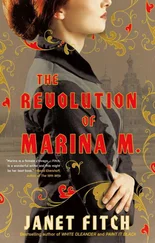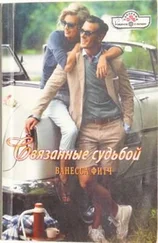As we made our way through the countryside, I eyed the sailors and soldiers smoking on the roofs of the cars, taking in the sun like seals, the sound of their easy laughter—protecting the Red October clearly a plum job. How I envied them riding up there in the fresh air like kings. Though there was plenty of room inside the train, many of them preferred it on top, for the view and probably the freedom from the eternal speechifying of the politicals, their dead earnestness, not to mention the artists with their theories and the actors rehearsing and squabbling, talk they said made their heads ache.
At one agit-stop, as the train prepared to leave, I could resist no longer. Making sure Genya wouldn’t see me—he’d grown so protective!—I grabbed the hot iron ladder and climbed, glad I was wearing my boots. Though bare feet would have given me a better grip, they would have burned. The baby unbalanced me, making even that little ascent a challenge. Where was Esmerelda the tightrope walker? One of the sailors, Slava, from the fortress island of Kronstadt, leaned over the edge and saw me. “What are you doing, little mother?”
“Need some air, Comrade,” I shouted up to him. “You can’t hoard the view, it belongs to everybody.”
“Don’t fall, then. We’re about to leave. Steady.” Strong arms and cheerful faces handed me along, across to the rooftop platform on which they sat, and they cleared a place for me.
As I took my place among our sailor escorts and the hitchhiking soldiers, I felt as I had when I’d climbed into the boat on the Rostral Column, that soar of spirits I never expected to feel again. The train jolted, and I shrieked and clutched Slava’s arm. The train was moving. “Hang on, little mother!” He grinned.
The smoke made me choke until we picked up good speed, then it thinned out, chased away by the wind pounding my face, howling in my ears. I quickly retied my scarf under my chin as the sailor held on to me. It was glorious, terrifying. The sound—the speed! I’d wanted to ride up here since I’d first seen them, and now I was on top of the world, clinging madly to the striped-shirted sailor. Ah, the rush, the sweep of the horizon, this enormous country headed into its future! I felt like I was riding time itself, the sun on my face, the freshness of the fields, the great green expanse of Russia in the blue bowl of her heavens.
And my husband down below, hard at work in the old dining car, writing, discussing a pamphlet with the printers, making plans with Marfa Yermilova, our grim-faced political officer, the oldest of them all and senior in command. But he might as easily have been writing a speech or rehearsing a new sketch with the Communal Theater of the Future. I knew I should be down there with him, helping in some way, proving I wasn’t just a drain on resources, Genya’s barefoot bride. But I craved the wind and the open air the way some craved wine or a lover’s touch.
Suddenly we were slowing—the hollow grinding of wheels, the pitch dropping, the shockingly loud whistle crying out into the blue day, smoke back in our faces. I held tight to Slava, a sailor far from the sea.
“Hurry up, brothers!” Slava called out to peasants, running toward us across their plowed fields, their green wheat, stumbling and scrambling to get word of the war, of the outside world. We were their newspaper, their telegraph, their harbinger of spring, dressed in the bright plumage of their wildest dreams. What a visitation we seemed to them, what an apparition. “Greetings from the revolution!” I shouted into the wind. We slowed but did not stop, while from the open doors of the press wagon two cars ahead, pamphlets flew out like birds escaping from fallen cages. “Down with Kolchak!” we shouted, shaking our fists. “We’ll win it yet! Good harvest!” And they waved back, clutching the white sheets in their hands. They grew smaller and smaller. One boy ran after the train, then stopped, watching us leave. I knew that heartache, watching the future leaving without you.
Now Genya’s head poked up at the top of the ladder—his tawny hair close-cropped under his cap, face dark with worry. Spotting me, big belly in my lap, sitting happily among the soldiers and sailors, his anxious expression fell away, replaced by a quick grin, heavy-boned, handsome face alight, and then the clouds returned. “What do you think you’re doing up here?” he shouted as he crawled up onto the roof. The sailors and soldiers shouted when they saw him, helping pull him along. They all wanted to touch him, thump him, steady him—a man just like them, and yet, possessed of this song, a bargeman-Keats, giving voice to things they had dreamed but never expressed. They treated him as they would a popular sergeant, and he could have been one, if you didn’t know him better. For all his talk about smashing this and beating that, I knew he couldn’t even kill a spider, let alone the bourgeoisie, Whites, or the kulaks whose blood he was clamoring for. His tenderness was our secret. “Are you crazy?” he shouted to me. “Don’t you have one atom of sense in your head?”
My father used to say the same thing. But Genya was the one climbing along the top of the train while it was still in motion. He cautiously settled next to me, steadied by the sailors, who moved over to make room for him.
“Would you let your woman ride on top of a train?” he accused Slava.
Slava shrugged. Generally, the civil war attitude was every man for himself. “You should be proud. A woman who isn’t afraid of her own shadow. It’ll be good for the kid.”
“Why didn’t you tell me where you were going?” Genya was still upset. “I couldn’t find you. I thought we’d left you behind,” he shouted into the wind. “Olga said she’d seen you come up here.”
“It’s glorious!” I leaned against him, my face to the wind. “What are you doing up here? Don’t you have speeches to write?”
“I had to find you. I couldn’t wait.” He pulled off my scarf and let my hair blow wild, whipping his eyes. “Had to see that flag flying.”
I snatched my scarf back and with some difficulty got my hair back under it.
“You are the craziest woman I’ve ever met.” He crammed his cap tighter on his head, touched my cheek with his enormous hand, the other circling my round belly, as I sat back against him. “There’s nobody as crazy as you. Other people listen to me now, in case you haven’t noticed. But you still treat me like that kid back on Grivtsova Alley.”
And they did listen to him, asked him questions: Comrade, how should we word this? Comrade, news from the front. He was the one with the propusk from Lunacharsky himself, putting him in charge of the train’s theatrical-propaganda mission. The very idea that people thought him wise, that they turned to him, that they asked him things, not knowing who this was, made me laugh. A futurist poet, running a train during a civil war? It took some getting used to. But I thought of Varvara at Smolny, when I’d visited her to get help for my mother, how they’d pestered her for decisions, a nineteen-year-old girl. The revolution sped people along.
“You need to grow up,” he yelled. “And stop pulling stunts like this. I have to concentrate—I’ve got other things to do besides worry about you.” He pulled me against him, kissing me, his shaven face rough against my neck and cheek. “You’ve got to start thinking like a mother, and not some wild girl.”
I couldn’t believe what was coming out of his revolutionary mouth.
“What if you slipped? What if you fell?”
“Yes, Avdokia.” How boring. It was the worst thing about carrying a child, people were always telling me what to do. The merest stranger imagined he had the right to tell me how to live and when to breathe. As if I had become less adult for being a woman, a mother-to-be. “You’re more likely to fall than I am. Buivol! ” Buffalo. “You’re an unstable character.”
Читать дальше












